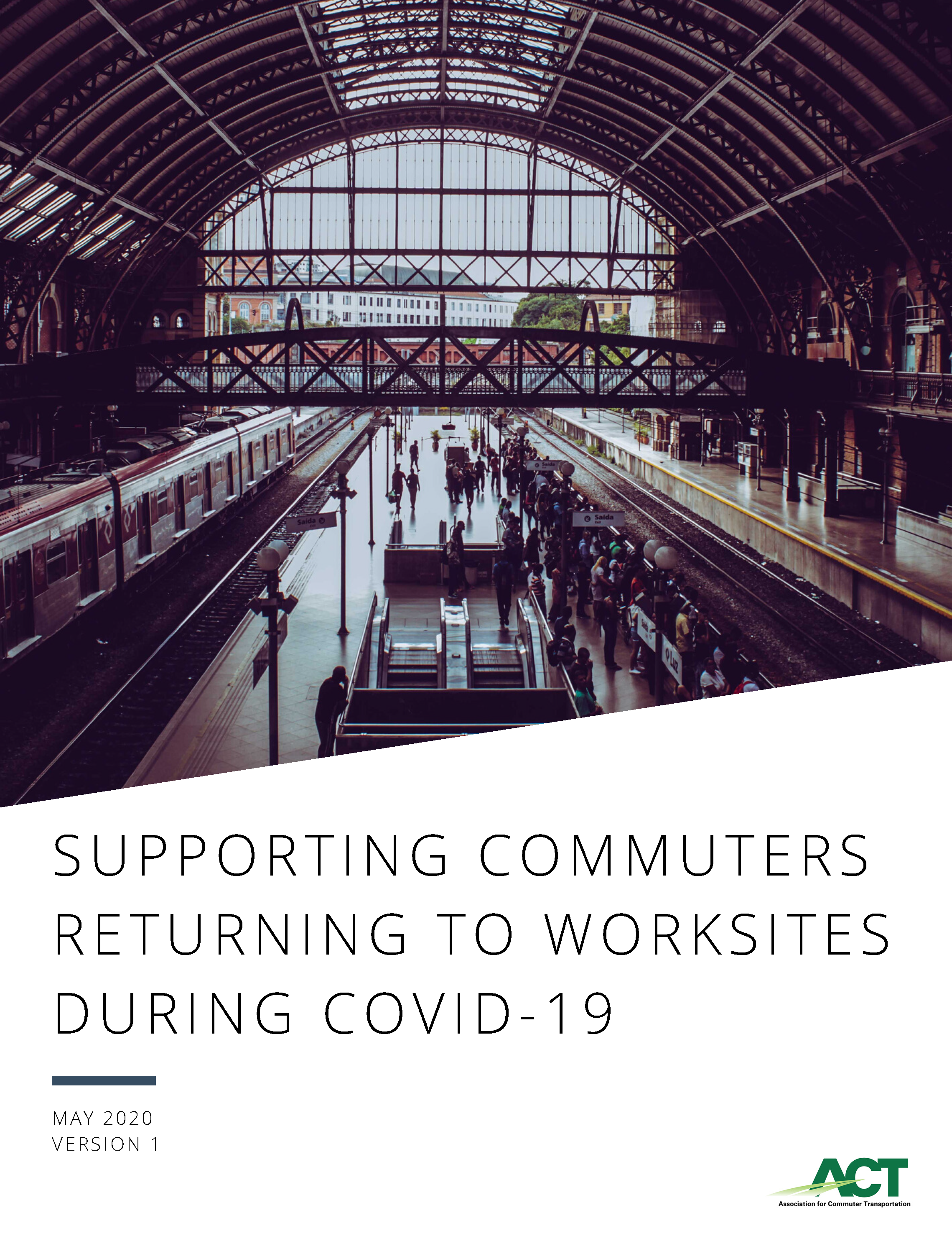
The Association for Commuter Transportation (ACT) has reviewed the guidance issued by the Centers for Disease Control (CDC). While we understand the great importance of focusing efforts to protect public health, we disagree with their guidance stating:
“For employees who commute to work using public transportation or ride sharing, consider offering the following support: offer employees incentives to use forms of transportation that minimize close contact with others, such as offering reimbursement for parking for commuting to work alone or single-occupancy rides”.
This is simply not possible nor practical for all commuters.
According to a 2018 Census Bureau report, 8.7 percent of households in America do not have access to a vehicle, and many who do must share it with a spouse/partner and other family members. In addition, many urban areas do not have enough parking spaces available to meet the demand if all employees drove to work alone. In that event, regions large and small would experience new levels of congestion and gridlock, resulting in worsened air quality that could significantly increase public health risks for individuals suffering from asthma and other respiratory conditions.
Throughout the pandemic, essential employees have relied on public transit, carpooling, vanpooling, biking, and walking to commute to work, while millions worked from home.
ACT’s recent report,
Supporting Commuters Returning to Worksites During COVID-19, provides recommended practices for managing different commute modes while continuing to support the health and safety of commuters during the coronavirus pandemic. These recommendations include simple actions like limiting occupancy in vehicles, reserving seats, shifting work hours, being flexible, and most importantly cleaning that transportation providers, employers, and commuters can utilize to the safe use of carpooling, vanpooling, public transit, private shuttles, and telecommuting.
This publication is publicly available and sharing this resource is fully encouraged by ACT.
 The Association for Commuter Transportation (ACT) has reviewed the guidance issued by the Centers for Disease Control (CDC). While we understand the great importance of focusing efforts to protect public health, we disagree with their guidance stating:
The Association for Commuter Transportation (ACT) has reviewed the guidance issued by the Centers for Disease Control (CDC). While we understand the great importance of focusing efforts to protect public health, we disagree with their guidance stating:
